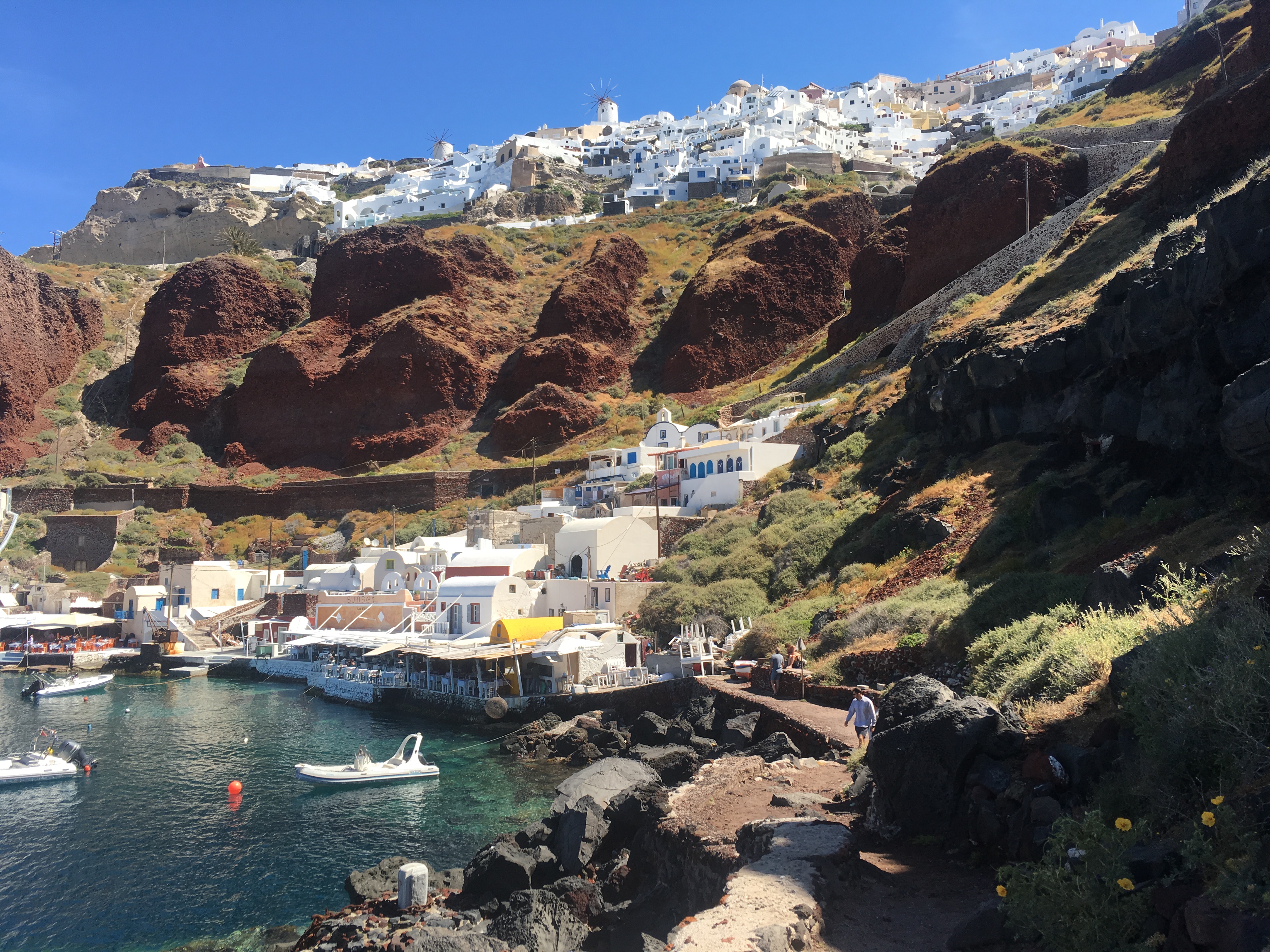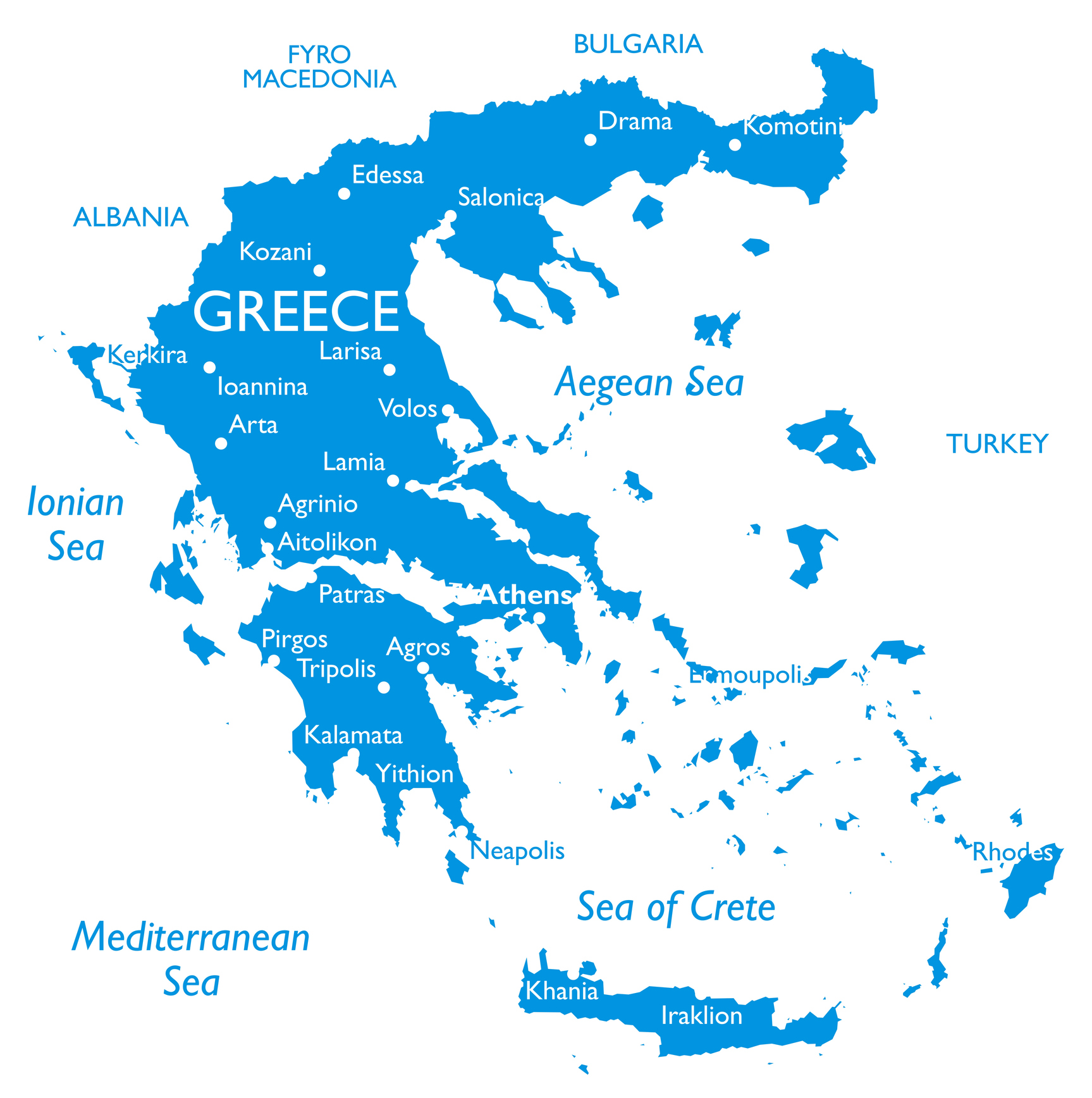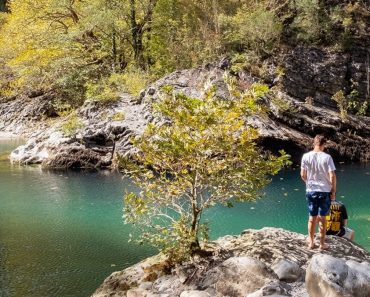There are as many reasons to retire in Greece as there are Greek islands (6,000), but we’ll highlight just the key ones. With temperate weather, notably friendly locals, high-quality fresh food, and an arguably peerless inventory of historical sites, Greece should be on any potential expat’s list for a happy retirement. The country is famed for its world-class beaches. And 227 of those 6,000 Greek islands are inhabited, from cosmopolitan Crete to tiny Symi. They are ripe for exploration and, possibly, life’s next chapter.
“Over the past 12 months, we have witnessed a 30% increase in interest for Greek residency programs,” says Adalberto Pucca, head of sales and business development at Global Citizen Solutions, which assists clients with Greece’s visa programs, as well as visa programs in Europe generally, and in the Caribbean. (Global Citizen Solutions has local representation in Athens and on the island of Corfu.) “Following the U.S. elections,” Pucca adds, “this interest has surged by over 85%.”

(Image credit: Drew Limsky)
Retire in Greece for movie star beauty
Even frequent visitors to the country soon realize that once they’ve enjoyed the capital of Athens — climbing up to the Acropolis to marvel at the 5th-century B.C. Parthenon — and island-hopped the Cyclades, from the whitewashed cave houses of Santorini to the waterside taverns and bars of Mykonos, they’ve only scratched the surface.
Sign up for Kiplinger’s Free E-Newsletters
Profit and prosper with the best of expert advice on investing, taxes, retirement, personal finance and more – straight to your e-mail.
Profit and prosper with the best of expert advice – straight to your e-mail.

(Image credit: Getty Images)
So much of the country is cinematically beautiful: Mamma Mia! (2008) was shot in the lush and colorful Skopelos and Skiathos, in the Sporades archipelago; the acclaimed Olivia Coleman vehicle The Lost Daughter (2021) unfolds in the chill, car-less island of Spetses, in the Saronic island group, southwest of Athens; and Ethan Hawke continues to romance Julie Delphy — this time in southern Greece — in the third installment of the Before trilogy. Atypically, Before Midnight (2013) is set in the spectacularly scenic Peloponnese, which feels island-like, but is actually composed of peninsulas extending from peninsulas.
The range of films shot in such divergent areas of Greece amply demonstrates that the country is far more than the dreamy cliffs and sunsets of Santorini as depicted in Summer Lovers (1982), which was, for many a Gen Xer and Baby Boomer, their first exposure to the country.

(Image credit: Getty Images)
Visa and money matters
Golden visas. Americans considering retirement in Mediterranean climes have noted that while Greece still offers its golden visa (residency in exchange for a property investment in the country), the cost of the transaction has spiked and spiked again. That’s how popular this sun-splashed country, which is dotted with antiquities, remains.
“For those who can afford the golden visa, it’s an interesting opportunity,” says Federica Grazi, founder and managing director of Mitos Relocation Solutions, which focuses on retirement in Greece. “Greece has one of the only golden visas left in Europe that allows you to obtain residency by investment in real estate.”
When Greece debuted its golden visa program in 2014, you could obtain a visa by purchasing property worth 250,000 euros. But as in other coveted European countries, when foreign ownership began to price locals out of the housing market, pushback followed.
Since 2024, with the implementation of a dual-tiered system, the cost to attain a golden visa in Greece’s most sought-after locales has been pegged at 800,000 euros. This top tier includes Athens and its environs (known as Attica); Thessaloniki, the second-largest city; and the iconic Cycladic islands of Santorini and Mykonos. Lesser-known, less densely populated parts of the country command a golden visa investment of 400,000 euros.
FIP visas. In addition to the golden visa, retirees may look into the FIP (Financially Independent Person) visa. Though no substantial investment is required for the FIP, applicants must show they can support themselves through a monthly income of 3,500 euros. FIP visa holders must remain in Greece for 183 days a year, and although working for Greece-based companies is forbidden, remote work for overseas employers is permitted. Pucca says the FIP “is ideal for those with passive income, while the golden visa provides more flexibility, as it has no minimum stay requirements.”
Grazi notes that the FIP visa must be renewed every three years, while the golden visa, because it is dependent on holding property, has a more automatic renewal process. “It has more certainty,” she says.
Ancestry visas. Pucca points out that an ancestry visa is an option for a select few, but that means you must prove, through municipal documents (such as birth or marriage certificates), that a parent, grandparent, or great-grandparent was, or is, a Greek citizen. “Processing times vary, depending on the consulate handling the application,” he notes. “On average, it takes 12 to 18 months, though this timeframe may be longer if the sourcing of required documents proves challenging.”
Taxes. Finally, American retirees in Greece are generally not double-taxed, including on Social Security. But, as any expat will tell you, it’s smart to enlist a tax accountant, in one or both countries, who is conversant in the tax implications of moving to Greece and keeps track of any changes in tax law. Tax advantages may be influenced by the amount of time you spend annually in Greece, as well as where your income (including passive income) is derived from.
City or island?
“While Athens remains a top choice,” Pucca says, “many retirees are now exploring alternative locations across Greece. Crete and Corfu are particularly popular due to their high quality of life, lower living costs, and widespread English proficiency. These destinations offer a perfect mix of authentic Greek culture, modern amenities, and accessibility for expats. Their Mediterranean climate, rich history, and welcoming communities make them excellent alternatives to the capital, providing retirees with both comfort and adventure.”
Because it is Greece’s largest island, Crete is a year-round destination that is generating a lot of interest. “It’s a very balanced option,” Grazi says. “You can drive almost everywhere within an hour, and yet it has frequent flights to the mainland and a lot of diversity in terms of the cultural scene.” Grazi also praises the relatively populous Syros for its year-round activities, as it is the administrative center of the Cyclades — and notes that it doesn’t carry the price tag of its more illustrious neighbors.
Daniel Rentillo, a New Yorker who used to work in fashion, chose to retire in Greece four years ago on a golden visa, which has accorded him permanent residency — as long as he doesn’t sell his properties. “It was easy, and no one was really doing it back then,” he recalls.
Rentillo made an unconventional, sort of spur-of-the-moment choice: He retired in Symi, a small island off the Turkish coast, known for its fine beaches and its multicolored harbor. The island has a year-round population of around 2,500 (which swells during the summer tourist season). He’d enjoyed Symi on a previous visit, and the thought of touring dozens of other islands for comparison was overwhelming. “You can spend your whole life trying to figure out where to live in Greece,” he says, “because there are so many places, and they’re all different. You have to find one that works for you.”
Once he found a house, the decision was made. “I didn’t know a soul,” he says. “The only other person I knew was my real estate agent, but little by little, I got to know a lot of people.” Symi, he says, has a “laid-back” quality and thriving international population, and benefits from being a short ferry ride away from the much larger Rhodes.
Also, he says, it helps to be “fit” to settle in Symi — there’s a lot of walking. The same can be said of virtually every Greek island, and some islands, like Spetses and Hydra, don’t permit private automobiles at all. Therefore, people who favor car-centric lives might be more comfortable in Athens, its suburbs, and the mainland in general. But note: Even in Athens, the Plaka, the city’s old town in the shadow of the Acropolis, is a pedestrian neighborhood that’s full of stairs, as well as shops and tavernas.

(Image credit: Getty Images)
Living in Greece: The takeaway
Beyond its physical and sybaritic attributes, Greece is a developed country with the 52nd largest economy in the world. It offers a fantastic quality of life without being costly: Everything from buying property to health care to meals out is relatively inexpensive compared to the U.S., even if the dollar, relative to the euro, isn’t as strong as it was earlier in 2025.
As other marquee European countries reassess and even discontinue their long-term visa policies, Greece is looking more and more like a feasible paradise for retirees.







